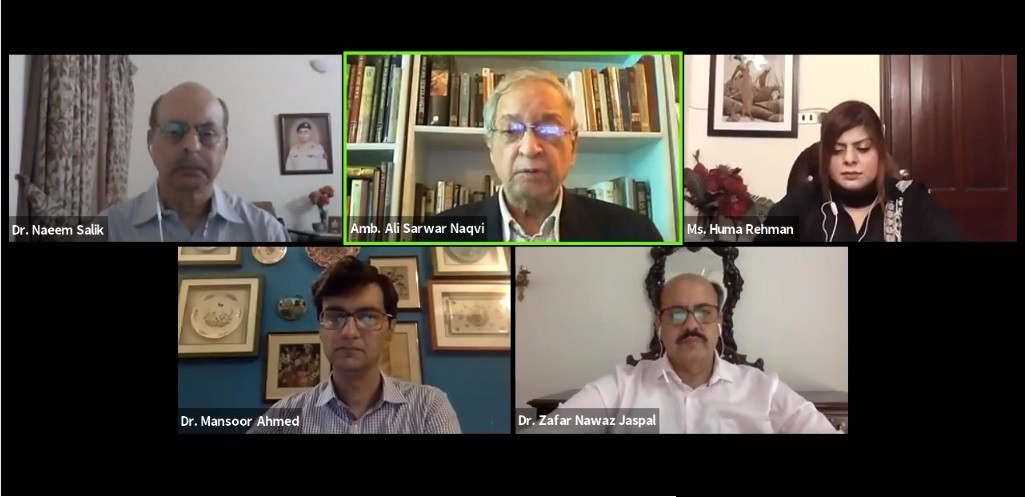By Hamid Khan Wazir
ISLAMABAD, Pakistan: Experts have warned that strategic stability in South Asia was being eroded by Indian arms buildup, its hawkish leaders, and the absence of a strategic restrain regime.
They were speaking at a webinar hosted by the Center for International Strategic Studies (CISS) on ‘Dynamics of Nuclear South Asia: 22 Years of Nuclearization’ in connection with the anniversary of Pakistan’s nuclear tests.
The session was moderated by the CISS senior researcher Huma Rehman.
Senior Fellow at CISS Dr. Naeem Salik, while speaking about the South Asian strategic environment, said strategic stability in South Asia was very fragile. In this context, he particularly pointed towards the hostile statements against Pakistan by Indian Prime Minister Narendra Modi, who controls the Indian nuclear button.
Strategic Stability in the region, Dr. Salik contended, was “tenuous and in absence of any strategic restraint regime, it is very dangerous for the peace of the region.”
The ‘new normal’ concept being propagated by India to indicate its readiness to engage Pakistan militarily, he said, is contributing to the fragility of the region’s strategic stability.
From the Pakistani perspective, he said, the ‘new normal’ implies that any future Indian misadventure against Pakistan would be responded strongly, aggressively, and with an equal or greater measure.
Pakistan’s response to the so-called ‘Balakot strikes’, he maintained, has conveyed Pakistan’s resolve in the most unequivocal terms.
Senior Fellow at CISS Dr Mansoor Ahmed, while talking about ‘Nuclear Pakistan and the Evolving Threat Spectrum in South Asia’, said that India’s arms buildup was aimed at Pakistan, although it uses China as a pretext to gain concessions from the West.
Dr Ahmed contended that India is acquiring and developing advanced weapons technology for use against Pakistan since it lacks the will and the capability to fight against China. “By fueling and building up the strategic triad, New Delhi aims to achieve escalation dominance and counterforce strike capability against Pakistan,” he added.
He advised Pakistan government against “tit-for-tat arms race” with India and said that the best option for it is to maintain its full spectrum deterrence, invest in defense research and develop and build domestic economic infrastructure.
Dr. Zafar Nawaz Jaspal, a professor at Quaid e Azam University Islamabad, spoke about the Nuclear Deterrence and Crisis Stability in South Asia. He too suggested that India uses the perceived threat from China as a ploy to acquire capabilities, which were adding to the imbalance with Pakistan.
“The West views India as a counter-balance to China. Whether India can keep a check on China or not, is another debate altogether but with this arms buildup and modernization of Indian military and strategic forces, the imbalance between India and Pakistan is increasing which would bring instability in the region,” he maintained.
Executive Director CISS Amb Ali Sarwar Naqvi in his remarks gave a background on the deliberations leading to the nuclear testing decision in May 1998. Amb Naqvi, who was then an additional secretary at the Foreign Office, had closely observed the decision-making process for the nuclear tests.





